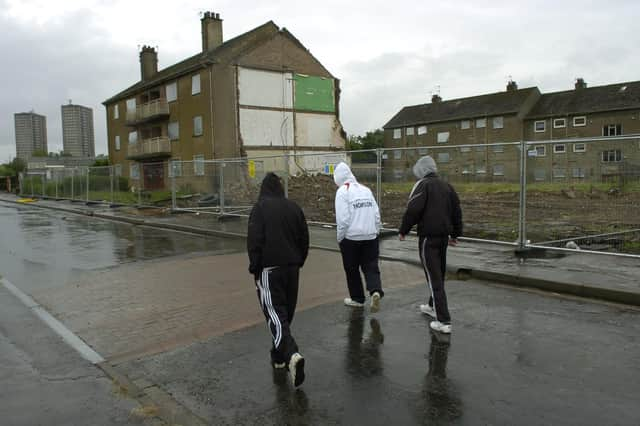One in three Scots children in poverty in worst-hit areas


The situation is twice as bad in areas such as Glasgow compared with the island communities, according to the figures which have been released by the End Child Poverty coalition.
Scotland has a flagship ambition to end child poverty by 2030, but the new data shows the scale of the challenge to achieve this aim.
Advertisement
Hide AdAdvertisement
Hide AdThere are now calls for Chancellor Rishi Sunak to dump plans to cut universal credit amid fears it could see some families miss out on up to £1000 a year.


The research by Loughborough University shows that, even before the pandemic, levels of child poverty in Scotland ranged from one in seven children in the Shetland Islands to nearly one in three in Glasgow, once housing costs are taken into account.
Children from low income families more likely to experience worse physical and mental health, perform worse in school and have fewer opportunities in the future.
The coalition is calling on the UK Government to set out an “ambitious” plan to use to tackle child poverty across the UK, and are asking the Scottish Government to build on the Scottish child poverty delivery plan already in place.
John Dickie, spokesman for the End Child Poverty Coalition said: "As a matter of urgency we are calling on the Chancellor not to go ahead with planned cuts to Universal Credit which would see families lose out on £1000 a year. Given today’s data, this cut is unconscionable."
Mr Dickie said the Scottish Government's child poverty delivery plan and prioritisation of the new Scottish child payment are "hugely welcome."
But he added: "These new figures highlight the importance of keeping housing costs affordable, the importance of reviewing the value of the Scottish child payment and the urgent need to use existing payment mechanisms, like local authority school clothing grants, to provide extra financial support to families right now.”
The new Scottish child payment which will see eligible children under six entitled to £10 per week additional support from February will have to double just to arrest the rise in child poverty, he added. The report is based on data published by the Department for Work and Pensions in March.
Advertisement
Hide AdAdvertisement
Hide AdA Scottish Government spokeswoman said: “As part of our £350 million community funding package to support those most in need during the pandemic, we have invested over £120 million in supporting people with food, including ensuring free school meal provision over the summer, and increased support for housing. In addition we paid carers in receipt of Carer’s Allowance a further supplement this year.
“And since 2007 have delivered almost 96,000 affordable homes and have outlined plans to invest over £2.8 billion in capital, over 5 years, to deliver more affordable and social homes across Scotland.
“We have continually called on the UK Government to reverse welfare cuts which are hitting harder than ever - including the benefit cap, bedroom tax, and two child limit, as well as making fundamental alterations to Universal Credit and maintaining the recent £20 rise which is imperative if we are to stop people being pushed into poverty.”
A message from the Editor:
Thank you for reading this story on our website. While I have your attention, I also have an important request to make of you.
The dramatic events of 2020 are having a major impact on many of our advertisers - and consequently the revenue we receive. We are now more reliant than ever on you taking out a digital subscription to support our journalism.
Subscribe to scotsman.com and enjoy unlimited access to Scottish news and information online and on our app. Visit https://www.scotsman.com/subscriptions now to sign up.
By supporting us, we are able to support you in providing trusted, fact-checked content for this website.
Joy Yates
Editorial Director
Comments
Want to join the conversation? Please or to comment on this article.